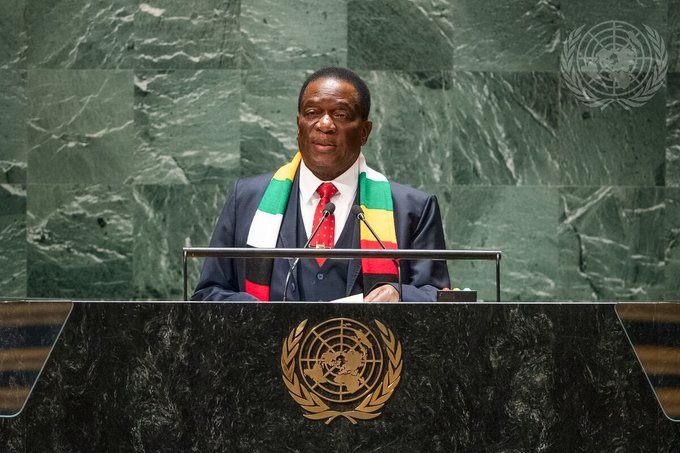Zimbabwe has officially submitted its bid for a non-permanent seat on the United Nations Security Council (UNSC) for the 2027–2028 term. The announcement was made by President Emmerson Mnangagwa on Wednesday.
A seat on the Security Council is considered a major diplomatic achievement. It gives countries a platform to influence global peace, security decisions, and international relations.
Focus on Peace, Cooperation, and Youth
President Mnangagwa said that Zimbabwe’s priorities, if elected, will include:
- Regional cooperation
- Peace and security
- Silencing guns
- Women and youth empowerment
He posted on X: “We will focus on peace, security, silencing guns, regional cooperation, and the women & youth agenda.”
Regional Support Boosts Bid
Zimbabwe has received strong backing from both the Southern African Development Community (SADC), which Mnangagwa currently chairs, and the African Union (AU).
The President described this support as proof of Zimbabwe’s regional credibility and influence.
Understanding the Security Council
The UNSC has 15 members—five permanent and 10 non-permanent. Non-permanent members serve two-year terms, elected on a regional basis.
Membership provides countries with a chance to:
- Engage in high-level diplomacy
- Shape international peace and security decisions
- Advocate for regional priorities
Lessons from Kenya
Kenya serves as a notable regional example. It has served three terms as a non-permanent member:
- 1973–1974
- 1997–1998
- 2021–2022
During its first tenure, Kenya held the Council presidency in February 1973. In its most recent term, it worked alongside India, Ireland, Mexico, and Norway.
Zimbabwe’s Global Ambitions
Zimbabwe’s bid reflects its ambition to play a stronger role in shaping global peace and security, particularly from an African perspective.
If elected, Zimbabwe will use its seat to champion regional stability, strengthen diplomatic ties, and promote the agenda for women and youth across Africa.

